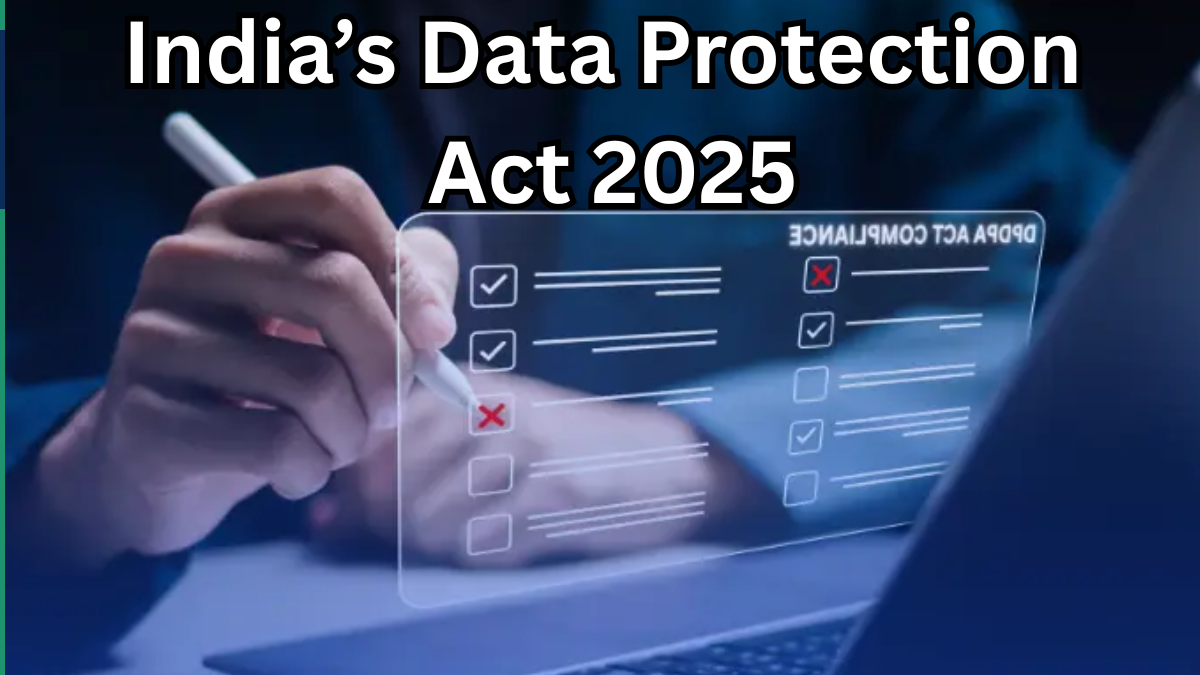The Data Protection Act 2025 is reshaping how businesses in India handle personal data. Whether you’re a startup or a large enterprise, ensuring full compliance is no longer optional — it’s essential for building trust and avoiding penalties.
This guide provides a step-by-step India compliance checklist to help you stay ahead of the curve.

Why Does the Data Protection Act 2025 Matter?
Data is the new oil, but mishandling it can be costly. The Act ensures that personal data is collected, stored, and used responsibly. Here’s why it matters:
-
Customer trust – Building transparency and credibility
-
Legal protection – Avoiding heavy penalties for non-compliance
-
Global alignment – Matching international standards like GDPR
Who Needs to Comply?
The Data Protection Act 2025 applies to:
-
Indian businesses processing personal data
-
Multinational companies operating in India
-
Government agencies handling citizens’ data
-
Startups dealing with customer information
If your business falls under any of these categories, following the India compliance checklist is crucial.
Full Compliance Checklist for Businesses
Here’s a structured approach to ensure you meet the requirements of the Data Protection Act 2025:
Checklist Item |
Action Required |
|---|---|
Data Audit |
Identify what personal data you collect and why |
Consent Management |
Ensure clear, informed, and revocable consent |
Data Minimization |
Collect only data necessary for your operations |
Privacy Policies |
Update and publish user-friendly privacy policies |
Data Security |
Implement encryption, firewalls, and regular security audits |
Data Breach Protocol |
Set up a system for detecting, reporting, and managing breaches |
Data Protection Officer (DPO) |
Appoint a DPO for oversight and compliance |
Cross-border Data Transfer |
Follow rules for transferring data outside India |
Employee Training |
Educate staff about data protection responsibilities |
Key Highlights of the Data Protection Act 2025
-
Heavy Penalties: Non-compliance can lead to fines of up to 4% of annual revenue
-
Rights of Individuals: Users can request access, correction, or deletion of their data
-
Stricter Consent Norms: Businesses must obtain clear and explicit consent for data usage
Best Practices for Staying Compliant
-
Regularly review and update your India compliance checklist
-
Use data encryption for sensitive information
-
Create a culture of privacy awareness within your team
-
Work with legal experts to interpret complex compliance requirements
FAQs
1. What is the purpose of the Data Protection Act 2025?
It safeguards personal data, ensuring businesses handle user information transparently and securely.
2. Do small businesses need to comply with the Act?
Yes. The Act applies to all entities that process personal data, regardless of size.
3. What are the penalties for non-compliance?
Fines can go up to 4% of a company’s annual global revenue, depending on the violation.
4. Do I need a Data Protection Officer (DPO)?
If your business processes large volumes of sensitive data, appointing a DPO is mandatory.
Click here to learn more
